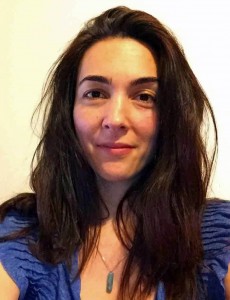University of Crete
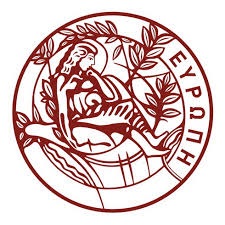
Maria Paschou received her Ph.D. in Sociology from the Department of Political Science and Public Administration, University of Athens in 2014 (MSc LSE, in Social Research Methods 2004; MSc LSE, in Social and Public Communication 2005). She has worked as Researcher for projects of the Institute for the Study of Migration and Diaspora of the University of Athens, the University of Vienna, the National Centre for Social Research in Athens, and the University of Crete. From 2014 she has been participated in the FP7 LIVEWHAT research project, the German-Greek GGCRISI project, and the H2020 TransSol project, which all examined collective action in the context of the crisis from different perspectives and with the adoption of various research methodologies and tools. Her recent research interests focus on civil society action towards overcoming economic hardship and becoming resilient, such as solidarity initiatives and ventures of an alternative economy.
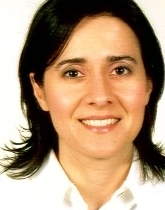
Eugenia Petropoulou is Lecturer in Sociology (Social Transformations in Contemporary Rural Space) Department of Sociology, School of Social Sciences, University of Crete. She acquired her Ph.D. in Sociology from the University of Manchester, UK specializing in Rural Sociology. She holds an MA in Sociology and Social Policy from the University of Durham, UK. Her recent research and writing (both Greek and English) focuses on Rural Transformations, Agricultural Policies, Environmental degradation, Short-food supply chains, Sustainable Livelihoods their social dimension in times of crisis as well as on Farmers’ Perceptions on bio-energy crops in Greece (in project WATBIO). Since 2001 she has participated as a project team member and research in numerous funded research projects specializing on the construction of qualitative interview guidelines and analysis.
Founded in 1973, the University of Crete is a multi-disciplinary, research-oriented institution, situated in the cities of Rethymnon and Heraklion. It is comprised of five Faculties and 17 Departments, with 14.480 students as well as 2.554 MA and doctoral students. The Research Secretariat currently handles over 900 projects varying widely in size, type and funding source. Grant incomes for the 4-year period 2008-2011 average €13.4 million a year, of which 75% relates to grants and contracts won specifically for research purposes. Research output is of a high standard, as seen in the Leiden Ranking for 2011-12, where the proportion of the University‘s publications that belong to the top 10% most frequently cited, normalized for size, place the University 149th among the top 400 European Universities and 324th among the top 500 universities in the world. More significantly, in the newly developed the Times Higher Education One Hundred Fifty ranking of HEIs less than 50 years old, which recognizes the 'halo effect' favouring old HEIs, UoC shares 50th place with a UK and a Canadian University among the selected 100 'national treasures.' UoC‘s new Center for Research & Studies in Humanities, Social Sciences & Pedagogics began operating in 2009. It hosts national and international research projects and fourteen research laboratories operated by faculty members who are affiliated with universities and research centers across Europe and North America.
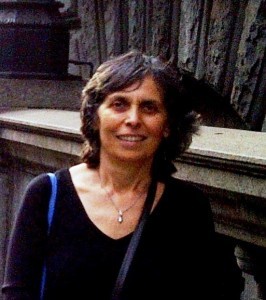
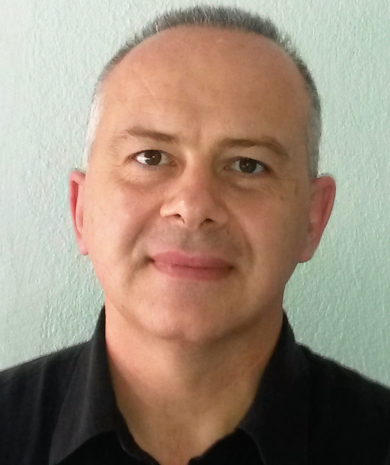
Maria Kousis (PhD, The University of Michigan, 1984) is the principal investigator of the Greek team. She is Professor of Sociology and Director of the Center for Research and Studies at the University of Crete. She is former Director of the MSc & Ph.D. program (2004-2008), and former Vice Director of the MSc in Bioethics (2010-13). She was coordinator of the EC DGXII project ―Grassroots Environmental Action & Sustainable Development in the Southern European Union‖ and partner in EC projects including TEA, PAGANINI, and MEDVOICES. Publications include 11 edited volumes/books/special issues, and 63 articles/book chapters, including Economic and Political Contention in Comparative Perspective (co-edited with Charles Tilly; Paradigm, 2005). Her research is focused on Social Change, Contentious Politics, Environmental Politics, Bioethics and Southern Europe. Her current work centers on the socio-economic and political dimensions of the crisis, especially in the context of the GGCRISI (Greek-German Ministries Cooperation), LIVEWHAT (FP7) and TransSOL (HORIZON) projects.
Konstantinos (Kostas) Kafetsios (PhD. Lancaster University, 1997) is Professor in Social and Organizational Psychology at the University of Crete in Greece and the Director of the Applied Psychology Laboratory. Research work within his group focuses on emotion in social interaction, in hierarchical relationships at work, and social relationships across and within cultures. He is a first author or co-author in more than 60 publications in international peer-refereed journals. He is an ad hoc reviewer for more than 70 international journals and Grant funding agencies, an Associate Editor for Frontiers in Organizational Psychology, the Journal of Social and Personal Relationships (2010-2015), and an Editorial Board member for the Personal Relationships, the Journal of Social and Personal Relationships, and the Hellenic Journal of Psychology. As a PI or Co-PI he has held competitive research grants from several national and European funding agencies (EEA, H2020, the European Commission, IKY, DAAD).

Stefania Kalogeraki is Assistant Professor of Quantitative Methods in Sociology and Social Demography at the Department of Sociology, University of Crete (Greece). She holds a BSc in Statistics (1998), an MA in Sociology with Research Training with Distinction (2002) and a Ph.D in Sociology (2007, University of Reading, UK). She has participated in European projects such as GGCRISI (Greek-German Ministries Cooperation), LIVEWHAT (FP7) and TransSOL (HORIZON) and worked as principal investigator in Greek research projects. Publications include the book “Introduction in Social Demography” (in Greek), the edited volume (with Maria Kousis) “Research Practices and Methodological Challenges in the Study of the Economic Crisis’ Social Impacts” (in Greek), and 26 articles/book chapters. Her main research interests focus on questionnaire design, quantitative comparative social research, social demographic analysis and mixed method designs.
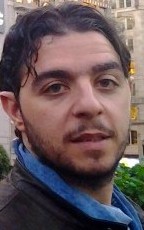
Angelos Loukakis is PhD Candidate and Researcher at the University of Crete Research Fund. His PhD research is about the political dimensions of the solidarity initiatives that are active in Greece at hard economic times. His other research interests focus on Mobilization, Collective Action, Protest, Social and Environmental Movements etc. He is a Master's (MSc) (2012) and a Bachelor’s degree (2007) holder in Sociology at the University of Crete. His master thesis was Local environmental protest and policies on waste disposal facilities in Greece, the case of Crete 1998-2010. Currently, he participates in the EU Horizon 2020 projects "TransSOL - European paths to transnational solidarity at times of crisis: Conditions, forms, role models and policy responses" (http://transsol.eu/) and ‘EURYKA Reinventing Democracy in Europe: Youth Doing Politics in Times of Increasing Inequalities’. Previously he has been involved in ‘GGCRISI The Greeks, the Germans and the Crisis, Discursive actor attribution analysis of the Eurozone crisis debate” project (http://www.ggcrisi.info), and at EU FP7 LIVEWHAT “LIVING WITH HARD TIMES, How Citizens React to Economic Crises and Their Social and Political Consequence” project (http://www.livewhat.unige.ch). He is a founding member of the Sociological Association of University of Crete Alumni. E-mail:
